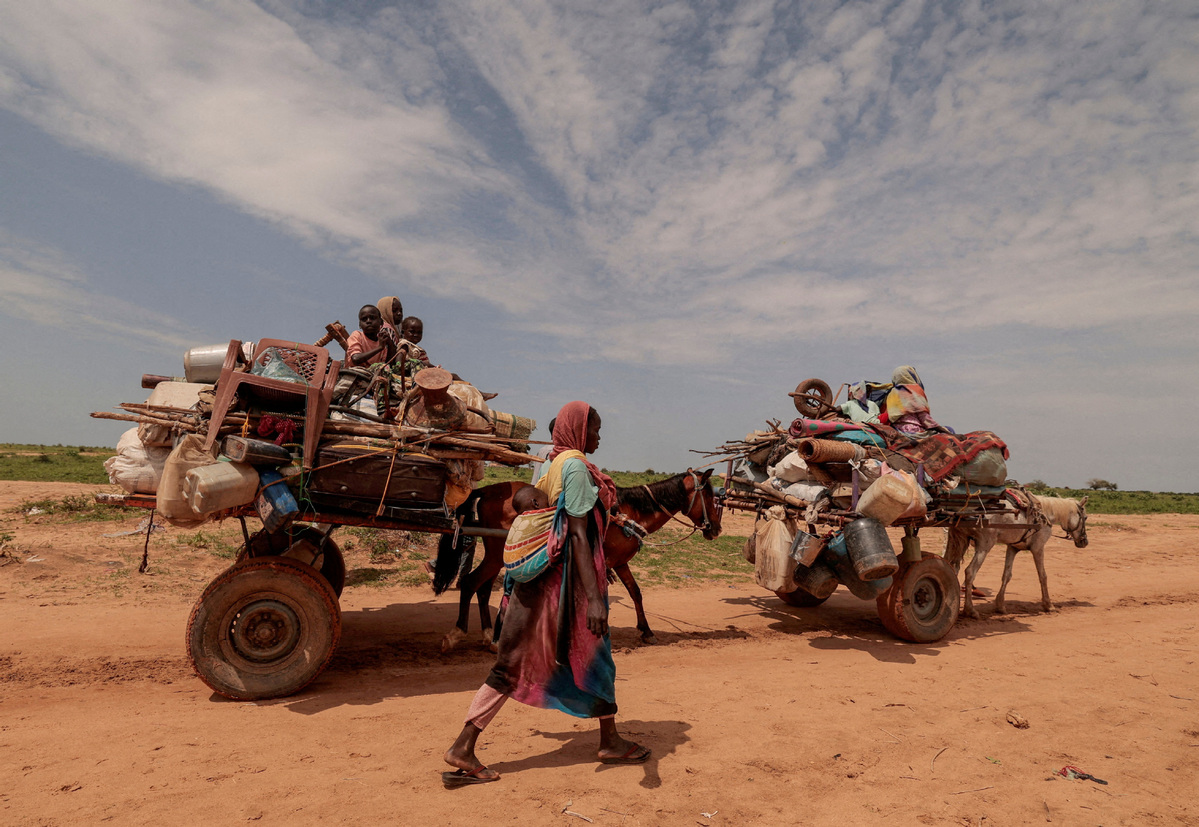The Sudan War exacerbate hunger and suffering one year down the line


Organizations from across the globe have called for urgent actions to address the ongoing war in Sudan that has created the world's worst displacement crisis and a looming famine over the past year.
The Food and Agriculture Organization or FAO, said food production in the country has been severely affected by the conflict, pushing millions of people into hunger.
The UN agency called for urgent and at-scale agricultural support ahead of the planting season which starts in June.
FAO said the 2023 production of sorghum, millet and wheat which was harvested last month was approximately 4.1 million tonnes, a 46 percent decrease from the output obtained in the previous year and about 40 percent below the average of the previous five years.
"This is a very practical manifestation of the impact of clashes, conflict and violence on food production. We clearly have a context that requires urgent and appropriate support," Rein Paulsen, director of the FAO Office of Emergencies and Resilience said.
In 2023, most inputs, including fertilizers and herbicides, and agricultural machinery were scarce and extremely expensive. In addition, they were often not available promptly, thus delaying planting and other agricultural operations, FAO said.
The war that broke out on April 15, 2023, between the Sudanese Armed Forces and the Rapid Support Forces in the capital Khartoum, has killed more than 15,000, displaced eight million people and left five million on the brink of famine, according to the USAID, a Washington headquartered international development agency.
The agency said 25 million people – more than half the population – are in need of humanitarian assistance.
The United Nations Children's Fund said hunger is reaching catastrophic levels in Sudan, with 17.7 million people - approximately over a third of the population – being acutely food insecure, including about 4.9 million who are experiencing emergency levels of food insecurity.
The UN agency warned that nearly four million children are projected to suffer from acute malnutrition this year, including 730,000 who are expected to suffer from severe wasting – the deadliest form.
Almost half of the children suffering from severe acute malnutrition are in areas that are hard to access due to the ongoing fighting, UNICEF said.
Despite the alarming risk of further violations and abuses against civilians amid a still worsening humanitarian crisis across the country, humanitarian organizations are concerned over the underfunding of the 2024 humanitarian appeal.
On Monday, France, Germany and the European Union organized an international humanitarian conference for Sudan and neighboring countries in Paris, where countries pledged a total of $2 billion. The conference brought together ministers and representatives of 58 states.
In reaction to the conference, Fati N'Zi Hassane, the Africa director of Oxfam, a British-founded confederation of 21 independent non-governmental organizations focusing on the alleviation of global poverty, said the conference largely failed to meet the enormous needs.
She said the pledged amount was less than half of the $4.1 billion needed to urgently help over 14.7 million people in Sudan and millions more suffering in Central African Republic, Chad, Ethiopia, and South Sudan.
"It is not too late to act. Donors and the international community must show clear, swift, coordinated action to save lives now. Warring parties must also ensure an immediate cessation of hostilities," Hassane said.
Hassane said the 2024 Sudan humanitarian need and response plan requires $2.7 billion, but so far, the appeal is 3.1 percent funded.

































